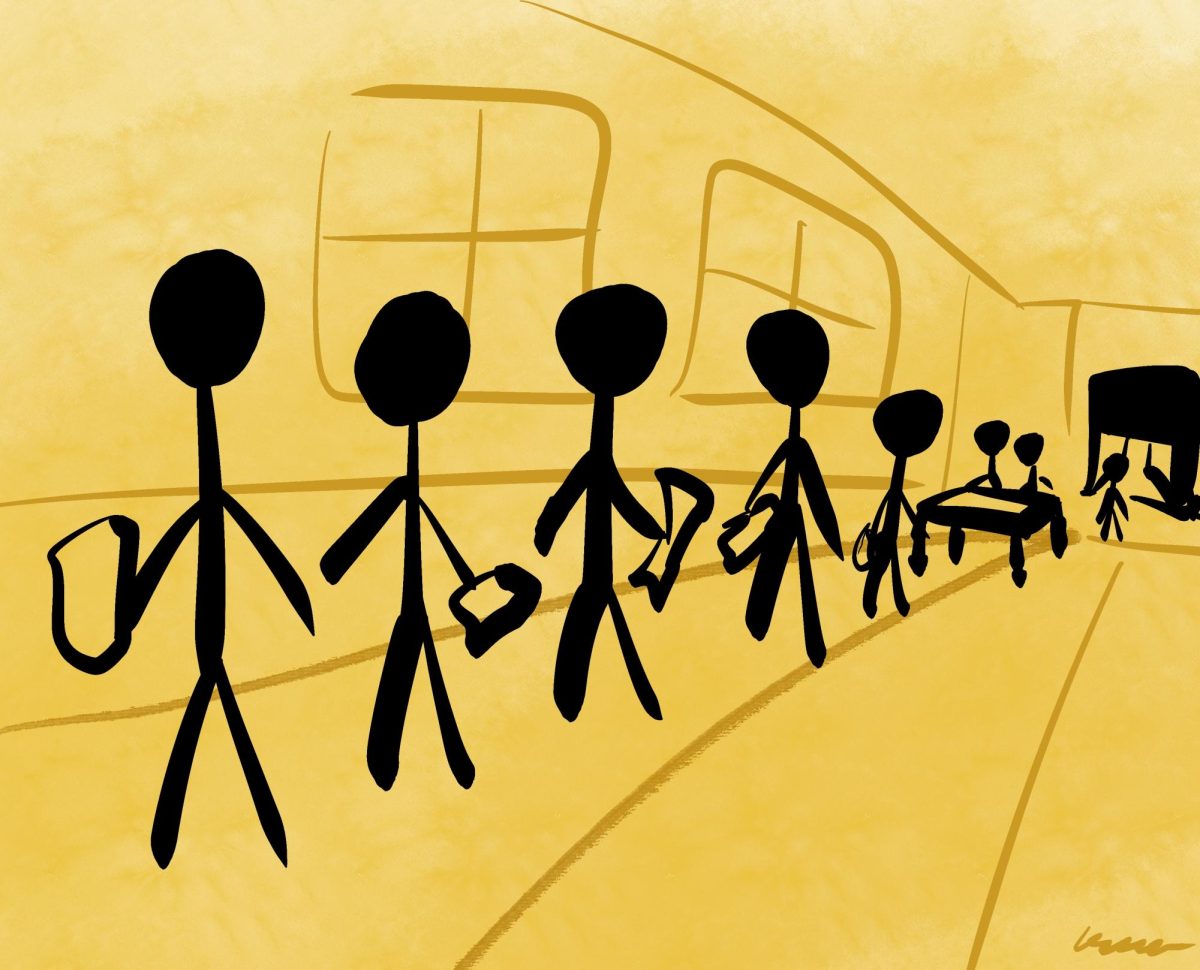Everybody gets stressed. Whether it is over homework or your final exam, everyone experiences stress at some point in his or her lives. To deal with the stress we come up with coping methods such as reward systems, exercising, or doing yoga to motivate ourselves to stop procrastinating. “Sorta plan ahead if you can, not to procrastinate [or] wait ‘til the last minute. I know it’s easier said than done…” said John Cowman, Community High School’s social worker. “I think it’s a human tendency to put things off.”
Stress may not be something you can easily point out, but there are many ways of telling whether or not a person is stressed. Physically, a person who is feeling stressed will experience headaches, stomach aches, feel tired and irritable, and may also have a hard time falling asleep and feel really exhausted. “It’s like having a slow leak in your tire; your bike can sorta drain energy from you,” said Cowman, who believes stress affects us in many different ways. “Some people handle stress better than others, for others it bounces off a wall and some people go crazy so you need to know how you personally react to it.”
“You know, sometimes you feel negative emotions charging up, negative energy coming out,” said Cowman. “We need to watch for this kind of stuff and watch for each other and your friends.” A good way to relieve stress is to have a good support group. “If sometimes all you want to do is vent, then vent vent vent, you’ll always feel better,” said Robbie Stapleton, Community High School’s health and personal fitness teacher. “Tell your friends if you’re venting to them, you don’t want advice, you just want to vent.”
Robbie Stapleton is a firm believer in exercising and eating healthy when stressed. “…stress creates a build up of something called cortisol in your bloodstream and exercise is the most effective way to alleviate that. [Exercise] draws it out of the bloodstream. So, I would say get moving, find some time, if it’s five minutes, 30 minutes or two hours, do it but be really regular about it,” said Stapleton. “It is the most easy, cheapest, most feel good and effective thing you can do.”
Community High school seniors, Christine Hagan and Micheal Savage, have different ways of coping with their stress. “I sleep because it’s crucial to get the sleep [you need] so you’re prepared to take your exams. Even though you can spend the time studying, sleep is more important because you want your brain functioning,” Savage said. Sleep is crucial when studying for tests because it lets your mind adjust and remember the stuff you have learned.
“I set up a reward system. So If I get or do a certain amount of problems, I can go eat something tasty.” Hagan said. Reward systems give you something to look forward to at a certain checkpoint; whether it is after a test or after 20 problems, rewards are a great incentive to keep yourself working. “It’s okay to say after finals, I’m going to go get a smoothie, or I’m going to go buy that new bag that I like, or I’m going to go ice skating with my friends,” said Stapleton. “I think it really helps to have a personal reward for getting the stuff done. “
Cowman suggests helping your friends cope with stress if you think they might be dealing with the symptoms. “If you see these kind of things in your friends, you kind of just need to be like ‘you look really stressed you want to talk? Go to the gym?’ just hang out and talk, have a cup of coffee and just watch out for each other,” said Cowman. “We’re all humans, we’re all in this together and stress is real.”
[quicktime]http://the-communicator.org/wp-content/uploads/2011/01/IMG_0179.mov[/quicktime]
[quicktime]http://the-communicator.org/wp-content/uploads/2011/01/IMG_0178.mov[/quicktime]









